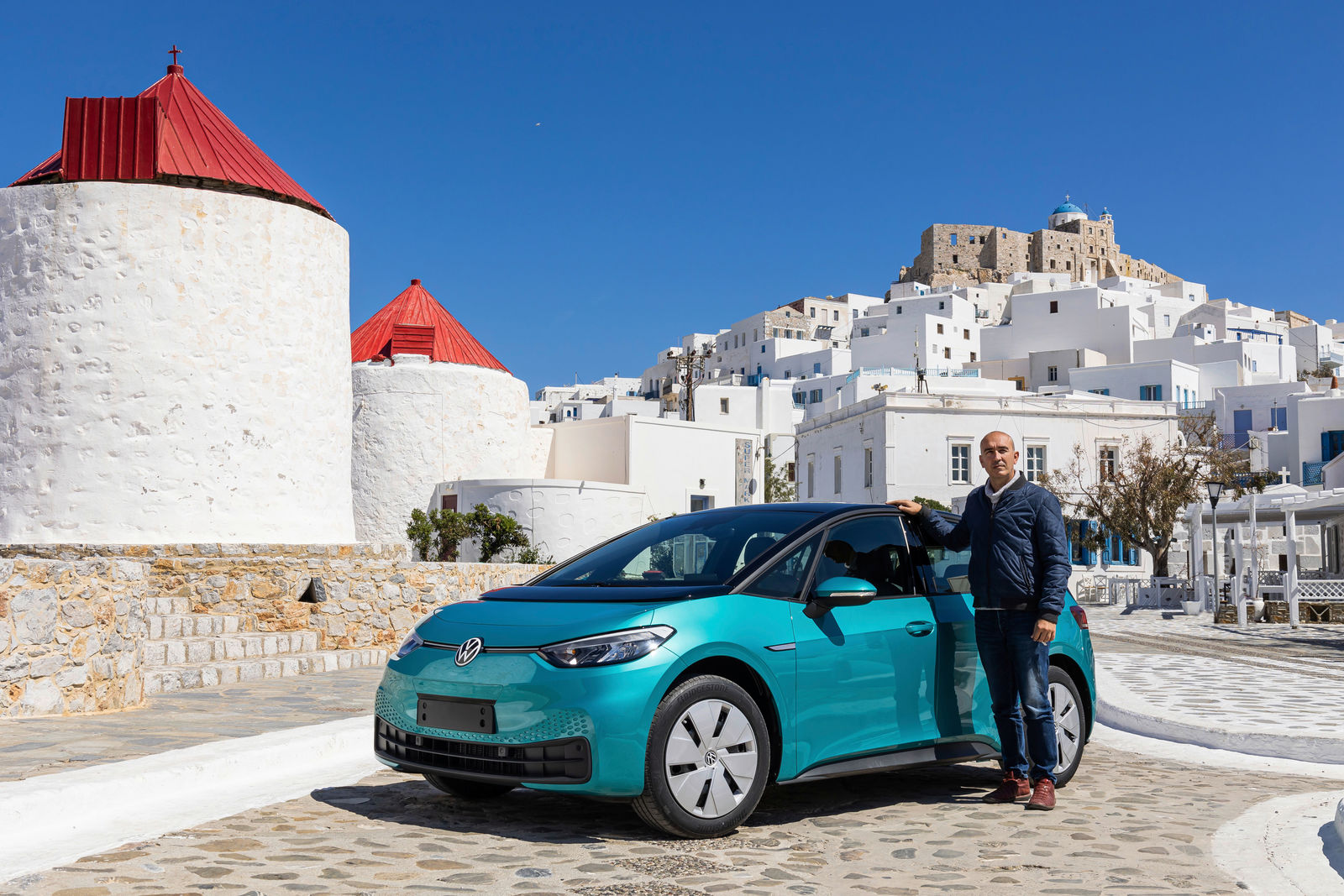Thanos Papagiannis, the first ID.3 customer on Astypalea, is a firm advocate of e-mobility. His new electric vehicle replaces a Volkswagen Golf 3: "E-mobility is a perfect match for Astypalea. The distances here are short, the power consumption is low, and the charging network is now very well developed. I really hope that Astypalea will inspire other regions to increase their efforts for climate protection adopting e-mobility solutions. "
Maik Stephan, Head of Business Development of Volkswagen Group and Project Manager, emphasizes: "Astypalea is a laboratory for the mobility of the future. The island is experiencing the same change as any other region in Europe, only in a much shorter time. With the first private customers driving electric now, word will quickly get around how fascinating e-mobility is."
Volkswagen’s commitment to the sustainable development of Astypalea goes even beyond the electrification of the vehicle fleet. Recently, the Volkswagen importer for Greece Kosmocar and the Municipality launched a recycling initiative aiming at freeing the island from scrap vehicles. Broken motorcycles, cars and trucks are simply left behind in many places, polluting the beautiful island of Astypalea. The recycling campaign is intended to eliminate the associated environmental impact and at the same time make the island even more beautiful. The vehicles are first collected by volunteers, then brought by ship to Athens and finally professionally recycled there.
The next milestone of the "Smart & Sustainable Island" project will be coming soon: In summer, Volkswagen will launch innovative, all-electric mobility services together with local companies. Ride sharing and vehicle sharing are designed to improve mobility while helping to reduce the total number of vehicles on the island.












